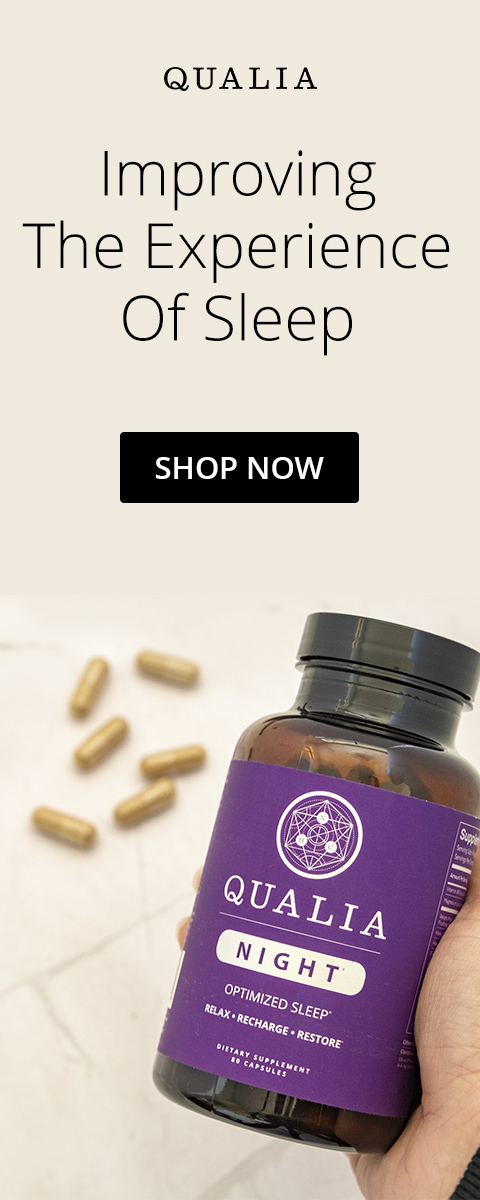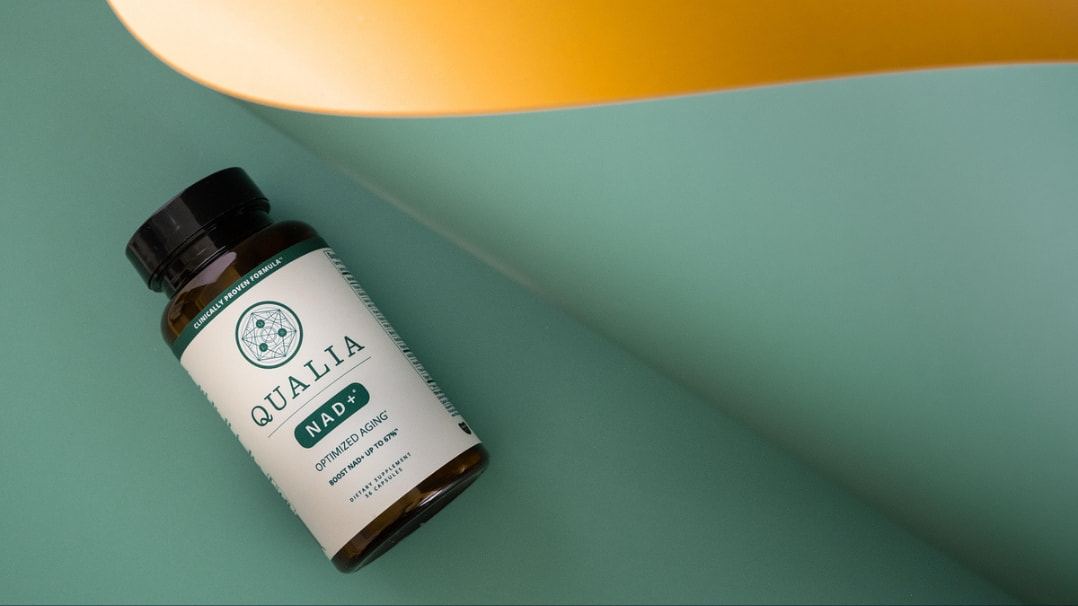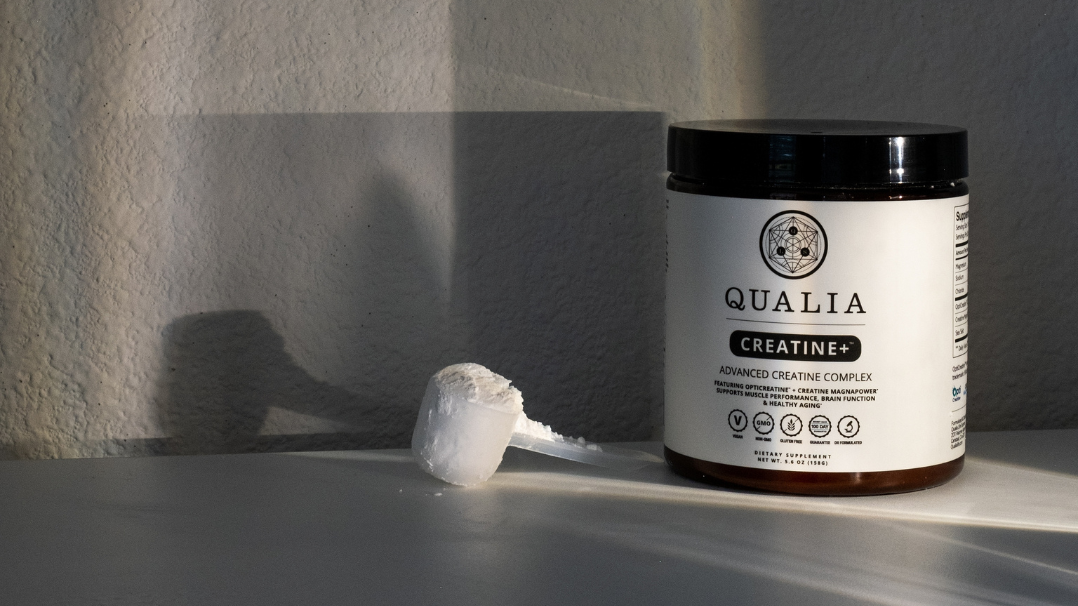 Q&A with David Rabin MD, PhD
Q&A with David Rabin MD, PhD
Apollo Neuro Co-founder, Co-inventor, and Chief Innovation Officer
Tell us about yourself what led you to specialize in chronic stress
As I went through my medical training, I always saw people who got better and people who didn’t. Even as a child with parents who are physicians and practice very traditional western medicine, I saw them help an enormous amount of people, but I noted the cases where the patient didn’t get better. You can do everything for a patient, and it still may not make a significant dent. This always fascinated me, and when I asked why they weren’t getting better, no one had a good answer. It made me realize there were a lot of gaps in our knowledge of chronic illnesses and what makes people more resistant to treatment or better able to bounce back and recover. What trains our bodies and our minds to be at our peak, not only for performance but also for recovery?
I’m a psychiatrist and a neuroscientist by training. I see people with treatment resistant depression, anxiety, PTSD, substance use disorders - and also some folks with chronic pain and traumatic brain injury. These are typically disorders that don’t get better with the gold standard of care today. The treatments that we’re taught are supposed to work often don't work more than 50% of the time in these illnesses. As physicians and care-providers, we’re not trained to deal with futility, we’re trained to provide a treatment with benefit. And when it doesn’t, it’s not just the patient that's disappointed, but it’s the caregiver too.
So I started studying chronic stress responses because it seemed like chronic stress and the way we handle stress management over time had a lot to do with determining how well we recover, particularly from mental illnesses. I realized that I wanted to work with the whole person. I much preferred working with not just your brain cells, neurons, or organs, but the whole you. I saw a lot of people suffering on opiates and antidepressants, and I wondered if people would try something different that didn't have the heavy side effects. That drove me into studying mental health with a particular interest in new, promising, non-invasive treatments that didn’t carry a significant risk.
How quickly can you tell someone is suffering from chronic stress...what are the visual clues?
First of all, it’s not your fault that you’re stressed out. When we’re stressed and we feel really bad about it, then we shame or guilt ourselves about feeling stressed out, which ultimately makes it worse. It’s not about shame or guilt. Everyone is stressed out. We all deal with it in different ways, and most of that comes from watching our family members and role models deal with stress growing up. All of these inputs teach us how to deal with our own stress. We learn from what we see others do. Sometimes these strategies work, sometimes they don’t.
Chronic health conditions are often precipitated by stress. We have a higher likelihood of depression, anxiety, and even pain. Our resting heart rate and blood pressure go up and we sweat more quickly with chronic stress. It even changes the way we smell and the hormones and pheromones we produce. Helping to regulate stress isn't just mind over matter. We have to learn to treat ourselves nicely, or we’ll fall apart. We have to maintain the temple.
Stress affects us in different ways. Some people feel tired with unmanageable fatigue. Sometimes people experience migraines, others gain weight. Some people become apathetic while others are hyperactive and lose all ability to focus. There are countless ways people experience stress. A little stress is good. As humans, we’re adaptable, so we learn from stress and grow stronger. However, extreme stress over time that makes us feel unsafe can leave us traumatized.
How can we shift our body out of fight-or-flight states?
When our body is constantly in a state of fight-or-flight, we actually forget that we’re in the state as it becomes the new norm. We are not biologically designed to live and make decisions in a persistent state of fight-or-flight.
We’ve forgotten we have the ability to naturally reverse this and adapt to a more balanced state, but we do. Through soothing touch, gentle music, breathwork, meditation, gratitude practices, and yoga -- we can teach ourselves to rebalance our nervous system, while exerting very little effort.
With a trusted loved one, try holding hands, making eye contact, and acknowledging each other's presence in the moment. This doesn’t have to be a romantic partner, I feel strongly about the importance of intimate platonic relationships and touch and the latest neuroscience science supports the benefits of this. These cues are evolutionary known to promote feelings of safety. That’s why you feel better immediately when you get a hug from a person you like after a bad day.
In my research, I mapped out the pathways from the touch receptor system from the skin to the brain. What we saw from doing an enormous review of existing literature is that safety is the first signal that is delivered to the brain through touch. The level of safety signals us to engage or withdraw in the moment. Apollo taps into that pathway, by providing gentle vibrations to the skin which activates this ancient evolutionarily conserved touch receptor system in all of us that sends positive signals to your brain that says “you’re safe and you have the opportunity to take control of your decisions from a standpoint of safety and strength, rather than fear.”
What are the best strategies for coping with chronic stress?
Many of us are in a consistently stressed out state and we’ve got more demands on our plate than we know what to do with. We’re constantly running around and have a nagging digital presence — and our bodies perceive this as if we’re constantly under threat.
We can meditate, practice deep breathing, and yoga — there are all sorts of opportunities. But if you’re already stressed out, it’s even harder to do the things that restore you, because you simply don’t feel good and change itself seems threatening. If your body is tense, you don’t want to work out. If your mind is racing, you don’t want to sleep. It’s a lot easier to binge Netflix. It creates a hard cycle. Apollo rapidly restores the body by quickly rebalancing our nervous system, giving us more agency and control over our decisions. Once we’re rebalanced, all of these techniques like meditation and deep breathing become much easier and can have the full impact they’re meant to have.
How does sleep impact/interact with all this?
It doesn’t take a neuroscientist to understand that it’s hard to sleep right now. When we’re sleeping, we’re entering a really deep recovery state where our awareness of our physical surroundings is significantly reduced. Our sleep is when we’re least aware of our environment around us and most vulnerable to threat. This requires our rest-and-digest, or parasympathetic activity to increase, and our fight-or-flight, or sympathetic activity, to drastically decrease, which is signaled by things around us that help us feel safe.
The sense of perceived threat that comes from things like overwhelming responsibilities, the news, elections, and global pandemics primes our nervous system to not let us sleep because our nervous system doesn’t want us to sleep when there's a threat present. This process is critical for survival. Sleep makes us physically vulnerable to threat. We’re programmed to respond this way, so remember it’s not your fault.
As humans, we have a large cortex which is the part of our brain on the surface that stores memories and experiences, including emotional experiences. When we feel threatened, we have an opportunity to question, is this an actual threat to our survival? Most of the time, most threats are not truly a threat to our ability to survive through the night. So we do have the ability to control this by practicing techniques that allow us to restore a sense of safety to the nervous system, thereby increasing parasympathetic tone. Whereas fear or threat is the trigger of the fight-or-flight sympathetic nervous system, safety is the trigger for activating our rest-and-digest parasympathetic nervous system. How safe we feel in any given moment is largely under our control more often than not when we learn how to control it.
How does stress impact the immune system?
There’s a direct link between stress and the resilience of our immune system. Stress increases sympathetic (fight-or-flight) nervous system activity, which strains the body, increases inflammation, decreases resilience to illness, and hinders our recovery from illness. Chronic stress and anxiety can leave us feeling tired, irritable, unhappy and distracted, and compromises our immune system.
How can we train our Heart Rate Variability?
Heart Rate Variability (HRV) is one of the most reliable, non-invasive ways to monitor the body’s balance between the parasympathetic (think: high HRV, low respiratory rate, and low heart rate) and the sympathetic (think: low HRV, elevated heart and respiratory rates, and high blood pressure) systems.
When we encounter stress in our environment, our heart rate, respiratory rate, and blood pressure should go up quickly so we can rapidly respond to actual threat. When we’re calm, safe, and not in the presence of danger, our heart rate, respiratory rate, and blood pressure should quickly return to a comfortable low resting rate. This is the body’s way of maintaining balance between performance and recovery.
Having consistently low HRV indicates that your body isn’t adapting to or recovering well from stress. This could mean that you aren’t sleeping well, you’ve exhausted your body, you’ve been working too hard without enough breaks, or that you are getting sick. Those of us with consistently low HRV have a higher likelihood of developing insomnia, chronic pain, cardiovascular illness, and anxiety-related disorders.
This is because chronic stress disrupts the normal balance of the nervous system by signaling to the body that we are constantly under threat, increasing fight-or-flight activity in the body resulting in elevated heart rate and blood pressure, quick, shallow breathing, and low HRV. High HRV is associated with improved focus, calm, performance (athletic and otherwise), breathing, pain tolerance, blood pressure, and resilience.
Through a double-blind, randomized, placebo-controlled crossover clinical trial, we found that Apollo improves your HRV within 2-3 minutes under stress. And we see that through consistent use of Apollo overtime, our HRV increases as a sign that we are able to bounce back more quickly, manage our stress more effectively, and resist illness.
What research have you gone through that led you to building Apollo? Can you tell us regarding your current and ongoing research trials?
As a psychiatrist, I work mostly with people with treatment resistant PTSD, depression, anxiety, and substance abuse disorders. Safety was the most critical factor in their recovery. I started figuring out other ways that I could help them feel safe in the clinic, office, and when they went home. I got really good at helping them feel safe in the office, but it was much harder to control when they went home. Many of my patients would use music or spend time with loved ones or pets at home. They felt they could regulate their mood and energy at home with music and touch (hugs).
Our entire university research team were musicians and mental health experts. We’ve always been fascinated by the way music changes the body very quickly without requiring much effort. When music starts, you tune in. Of all the frequencies, it turns out just a few in the bass range that form the rhythm really shift your energy and mood the most. We started to examine those rhythms to see the way people’s bodies change when they enter a relaxed state. It turns out there were some significant commonalities. We took what we know about the neuroscience of music and touch, combined with the literature of the common frequencies when we’re in flow or peak performance states, and we replicated this by stimulating the body through the skin and touch receptors. We took music and played with frequencies in a very specific layered way, it changed the breathing pattern, heart rate, and increased the HRV, particularly under stress. The more stressed out you are, the more performance and HRV improves when our subjects used Apollo.
In 2017, we explored this in a double-blind randomized placebo-controlled crossover study at the University of Pittsburgh with healthy subjects (Siegle & Rabin et al., under review). When people had no idea what frequencies they were being exposed to or what the frequencies were supposed to do, only the Apollo frequencies had these desired effects. The more that a subject’s HRV improved under stress with Apollo frequencies, the more calm they reported feeling and the better they performed on the task. These results painted a picture of effectively and quickly inducing balance in the nervous system. This has actually never been shown before, these mind and body metrics resulting in such a direct improvement in performance and mood within minutes.
We currently have a real world sleep study in the works where over 500 individuals using both Apollo and the Oura Ring track their sleep, heart rate, and HRV over the course of months. We’re learning a lot about how Apollo affects HRV, deep sleep, REM sleep, and recovery by gathering enormous amounts of real world data — and we’re really excited to release this in 2021 (subscribe to our newsletter for results). We have a number of other exciting trials in the works, too — stay tuned!
Apollo is a wearable wellness device that uses gentle vibrations to help your body recover from stress. Apollo’s scientifically proven technology improves heart rate variability (HRV), a key biometric of stress, so you can feel more calm, balanced, and perform at your best. Get 15% off at apolloneuro.com.
How does Apollo play a role in reducing stress?
As humans we’re not designed to deal with persistently high levels of stress, such as never-ending emails, pings, the news, and light pollution. This puts us in fight-or-flight mode more often than not. It makes it hard to sleep, hard to connect emotionally, and hard to focus. Our bodies are actually perceiving all these emails and pings and stress as actual threats.
Apollo is a wearable technology that uses vibration to balance the nervous system. Apollo brings the body back into balance by sending safety signals to our brains through our sense of touch, just like when someone gives us a hug on a bad day. There’s a wealth of literature about how touch changes the balance of your nervous system. Apollo sends gentle vibrations to the touch receptors in our skin that boost activity in our parasympathetic rest-and-digest nervous system which reminds our stress response sympathetic system that it doesn’t need to be activated right now. Our bodies know that if we have time to intentionally direct our attention to the gentle vibrations in this moment, or the feeling of air coming into our lungs in a deep breath, that we can’t possibly be running from a saber toothed tiger in that moment, allowing us to feel safe enough to focus, relax, and get restful sleep.
Apollo is super accessible and it can be used throughout the day, in any moment we need a reset. Apollo isn’t magic. It’s helping us to do something that we were all born being able to do: to feel more human, to just be present in the moment without worrying or thinking about anything else other than just being here, now. When we help the body feel calmer, it’s really us doing the work. The moment we feel calmer, we have better control over our attention to focus and to fall asleep because our body is no longer caught in the stress cycle. This moment of reprieve is incredibly helpful over time. This is our goal and our purpose at Apollo: to help us take control over our attention and stress.
How can Apollo help you to sleep better?
Biologically, when we’re sleeping, we’re entering a really deep recovery state where our awareness of our physical environment is significantly reduced. We’re least aware of our surroundings while we’re asleep. Our parasympathetic activity (rest-and-digest) increases, and our sympathetic nervous system (fight-or-flight) drastically decreases when we’re sleeping.
It’s hard to sleep when you can’t turn your brain off. When you’re trying to get to sleep, whether it's falling asleep or laying awake in the middle of the night, you may have these self-critical negative thoughts, or something that’s going on in your life comes up in thought. You resist that thought, then you have negative self-talk about being stressed and a bad sleeper. Because your body is in a sympathetic fight-or-flight mode, you’re primed for stress. But when your body relaxes, it makes it much easier to enter a calmer state. You’re in “flow” -- your mind and body are aligned, allowing you to drift off into a deep sleep. Apollo helps facilitate this by rapidly bringing your body to a safe state of calm.
Apollo sends safety signals to your brain to remind us that we’re safe enough to let our guard down, to drift into sleep, deep focus, calm, and really helps us to be mindful and present in the moment.
Our evolutionary response to threats hasn’t adapted. Today, our modern-day stresses most likely are not truly a threat to our ability to survive through the night, despite the fact that our bodies perceive an overwhelming inbox the same way as the growling animal outside our den. We’re internalizing all threats similarly and our reaction is the same — to stay alert and prepared. Sleep makes us physically vulnerable to threat. We’re programmed to respond this way, so remember it’s not your fault. With all the chaos going on in the world around us, it’s objectively a tough time to sleep well. That said, this means that it is even more important that we have tools like Apollo and breath work available to us to help us maximize our recovery whenever we can.
What’s next for Apollo? Are you currently working on enhancements and releasing other versions?
We are working on a number of enhancements to the app and device that we’ll be releasing soon. We’re intrigued by the intersectionality of technology and being human. Adaptability is one of our greatest strengths as humans. But many of us have forgotten that we’re really good at this. The future of Apollo is a tool that helps us get just a little bit closer to the most whole, optimal versions of ourselves by maximizing our innate skills of adaptation. The software enhancements we release starting in 2021 are focused on this goal.
Last, do you consider yourself a good sleeper? When did you realize you were one? What helped you become a good sleeper?
I’m a very good sleeper now. But it was a long road to get here. Ironically, one of the most pivotal steps of becoming a good sleeper was my medical training, and the need to learn to sleep anytime and anywhere, whenever I could, because free time for recovery was so scarce. Kathryn likes to say I can fall asleep standing up.
Walk us through your sleep routine from dinner till you hit the pillow. What devices, supplements/teas, tech, textiles, etc do you use?
Kathryn and I run a startup. I’m on Slack, email, text, recording podcasts, working on clinical research studies, and seeing patients, to name a few. We have as many pings as everyone reading this. We have to be able to have presence of mind, and be in a calm and focused state most of the day. What Apollo helps me do is accelerate that recovery, and helps me transition into a focused state, so the nonstop pings don’t send me into an overwhelmed sympathetic frame of mind. We don’t make good decisions in this frame of mind. We literally have tunnel vision. Apollo helps us function at work, but also after work, which leads me into my night time routine. The entire Apollo team uses their Apollos regularly to wake up, transition through various parts of the day, and to wind down and fall sleep.
Here’s a brief look into my nighttime routine that allows me to have long, restful, deep sleeps:
- I set a consistent bedtime. Going to bed and waking up at roughly the same time every day (even on the weekends) helps to balance circadian rhythms and supports recovery.
- I watch the sunset and try go outside as early as I can in the morning. Even brief exposure to the setting sun and early morning light can help balance sleep and wake cycles.
- Don’t drink liquids (aside from a little water) for at least an hour before bed.
- Sleep in a very dark room. If you live in a city, using blackout shades or an eye mask can help.
- Avoid anything stimulating after 6pm. I don’t like to consume any news, TV, or computer articles that could be upsetting in the evenings.
- Avoid noise disturbances. If you live in the city or in a louder environment, a white noise or wave machine is really helpful. My favorite background for sleep is ocean waves gently crashing.
- Avoid blue light from screens for at least an hour or two before bed. Blue light is very stimulating and sometimes, so is the content we’re consuming.
- Avoid caffeine and stimulants, particularly after noon.
- Avoid alcohol before bed. While many believe it helps make them sleep, it is known to disrupt sleep quality and contribute to waking up in the middle of the night.
- Sleep in a cool environment. A cold room helps facilitate deep sleep and you’re more likely to have intense dreams and wake ups in the middle of the night if you’re too hot.
Of course, I use Apollo, too. I unwind for the day using Relax and Unwind while I move around getting ready for bed. I like it around 40% intensity for 30 minutes. This helps me get prepared for sleep. When I’ve had an especially busy day (which is most days), I use breathwork in conjunction with Relax and Unwind on Apollo. Here’s what I like to do before bed and after I get into bed:
- Purse your lips as if I am breathing through a straw.
- Take a slow, controlled breath through my pursed lips until my lungs are full. Pause for a moment before exhaling.
- Exhale slowly, taking a few seconds longer to exhale than I did to inhale.
- When my lungs are empty, pause for a moment before repeating.
This breathing pattern is similar to the way we breath when we are deeply asleep, which I’ve found really helps my mind and body settle into a relaxed state. Once I get in bed, I turn on Sleep and Renew at 70% intensity for 60 minutes. If I ever wake up in the middle of the night, I just press both buttons on Apollo at the same time to get back to sleep within minutes.
If we find a product or service we love, we want to share that with our community. In some of these cases we will partner with the provider in an affiliate relationship which may result in a payment or benefit to Qualia. We won't ever enter into such an arrangement or recommend any product or service we haven't researched or stand behind.
All content provided on this website is for informational purposes only. This information is never intended to be a substitute for a doctor-patient relationship nor does it constitute medical advice of any kind.








No Comments Yet
Sign in or Register to Comment